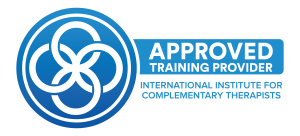Study Life Coaching and Start Helping Others
-
Get the the skills you need to set up and work as a life coach
-
Help you develop contacts and build networks within industry
-
Raise your awareness of opportunities within the Coaching Industry
-
Lay a sound foundation of knowledge and skills which can grow with experience and further study
Life coaching not only involves planning and engaging in processes to bring about change, it can also involve the life coach in motivating the client to accept the need for inner change in order to bring about outer change. In the end, the processes of recognising a need for change and for managing change may be even more valuable and contribute more to the personal growth of the client than the outcomes.
What you will do in this Life Coaching Course:
- Define life coaching and differentiate it from other professions such as psychotherapist, counsellor, personal trainer and so on.
- Understand that people perceive the world in different ways, and identify ways to help clients change counter-productive perceptions without excessive discomfort.
- Define a well-rounded individual and well-rounded life.
- Define different coaching skills including listening, analysing, planning and focusing.
- Identify ways in which life coaching can contribute to physical well-being.
- Identify ways in which life coaching can contribute to psychological well-being.
- Identify the areas in which successful life coaching can benefit a client.
- Understand the importance enabling clients to develop aims, plans and goals.
- Recognise the importance of reviewing and adjusting the life-coaching processes.
Accreditation:
Testimonials:
“… I learnt so much and was able to draw on my own experiences of life and knowledge as well as being challenged to think about a variety of issues…Elizabeth Seward is a great tutor and her feedback was insightful, thorough and helpful”. A. Finsterer, Life Coaching Graduate
Course Outline
There are 10 Lessons in this course;
1. Introduction
-
- nature of life coaching
- cognitive behaviour therapy
- different approaches
- the scope of life coaching
2. Individual perception
-
- psychology of self-perception
- perceptual barriers
- motivating clients to challenge their perceptions
3. A well-balanced life
-
- the inter-relationship between psychology and physiology
- stress
- the psychology of balance
4. Coaching processes
-
- key coaching processes
- assessment of the client’s situation
- dealing with emotions
- setting goals
- replacing negative habits with positive ones
- leadership qualities in a life coach
- imagination and enthusiasm
- clarifying goals
- recognition of limitations
5. Coaching skills
-
- understanding the communication process
- body language
- communication barriers
- listening skills
- assessing learning styles
6. Coaching and physical well-being
-
- human nutrition
- important factors in nutrition
- physical well-being
7. Coaching and psychological well-being
-
- the psychology of self-esteem
- stress management program
- identifying stressors
8. Coaching success
-
- high achievement
- coaching success
- career guidance
- managing your money
- beginning a business
9. Goal setting
-
- values
- aims and goals
- types of goals
- planning
- future goals
- steps for successful goal achievement
- effort and attribution.
10. Review and adjustment
-
- indications that a program needs to be reassessed
- client’s lack of confidence
- personality clash
- over-achievers
- health and safety issues


